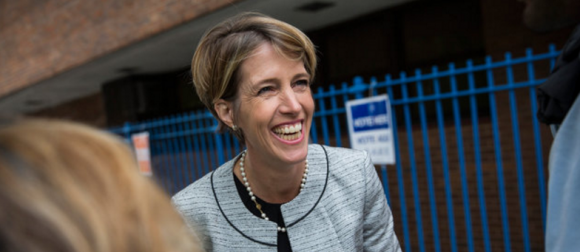Dear Commons Community,
In his final budget proposal to the U.S. Congress, President Obama called for an expansion of the Pell Grant program and more funding for community colleges. As reported in The Chronicle of Higher Education:
“The budget — for the 2017 fiscal year, which begins on October 1 — reiterates the president’s plan to make community college free while adding a new wrinkle: tax credits for companies that invest in community colleges and hire their graduates. It repeats his request for Pell Grant bonuses for colleges that graduate large numbers of low- and moderate-income students, and for stricter limits on the amount of revenue that for-profit colleges can draw from student aid. It also includes a proposal to expand and remake the Federal Perkins Loan Program, which expired in October but received a short-term reprieve in December.
Congressional Republicans have rejected most of those ideas in the past, and they are likely to do so again this year. But two perennial proposals might get some traction in the coming reauthorization of the Higher Education Act: streamlining the Free Application for Federal Student Aid, which has been widely criticized as overly complicated, and shrinking the number of loan-repayment plans available to borrowers. Both ideas are popular among lawmakers in both parties.
The president’s plan now heads to Congress, where election-year politics and budget constraints make it unlikely that many of his proposals will pass. Congress didn’t finalize the current year’s spending bill until December, and it’s not likely to do much better this year. Here’s a look at how the budget would affect academe:
A tune-up for Pell Grants.
President Obama’s proposals include a plan, first announced in January, to make Pell Grants available year-round to students taking a full course load, and to provide a $300 “on-track Pell bonus” to students who take at least 15 credit hours in a semester. (That’s the number of hours typically required to graduate on time.)
Reinstating year-round Pell Grants — which fell victim to budget cuts in 2011 — would help students finish degrees faster by letting them take more courses during an academic year. Many students now exhaust their annual Pell eligibility after just two semesters and are unable to pay for summer courses. The new proposal would provide nearly 700,000 students with an additional $1,915, on average, next year, the department has said.
The president’s budget would also make Pell Grants available to some adult prisoners for the first time in 20 years. A pilot program, which the Obama administration announced last summer, wouldn’t change the law that prohibits prisoners from receiving the grants, but it would allow some aid to flow to inmates through “experimental sites.” —K.F.
A boost for community colleges.
Like the current year’s budget, the plan seeks billions of dollars to make two years of community college free to millions of students. Unlike that budget, it would also provide grants to make two years of college free — or significantly cheaper — to low-income students attending minority-serving institutions. That expansion of the plan was borrowed from congressional Democrats.
The president’s budget would also create a new $2.5-billion tax credit for employers that team up with community colleges to design curricula, provide instruction and equipment, and offer job-based learning. Under that plan, which the administration announced on Friday, employers deemed eligible by their states would get a $5,000 credit for every community-college graduate that they hire into a full-time job.
Unfortunately as The Chronicle article indicates, the U.S. Congress is not likely to do much with this proposal.
Tony



